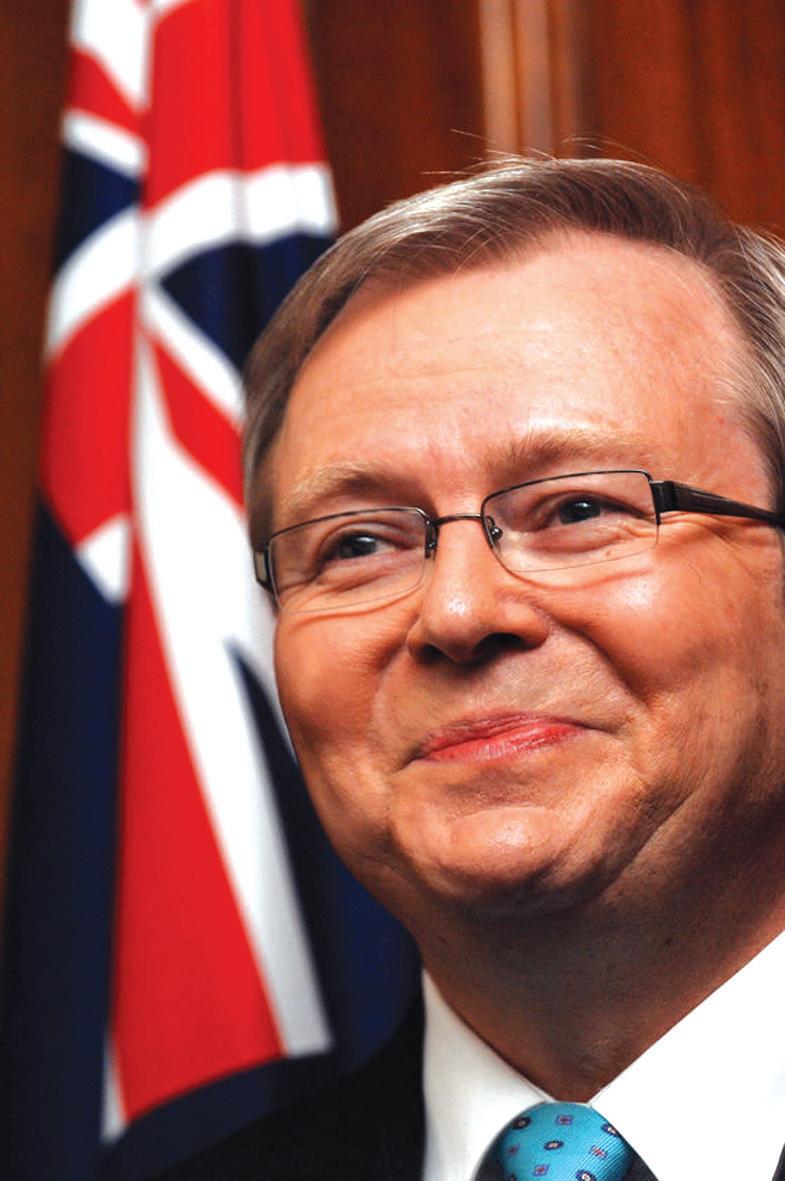
1 minute read
New super rules to benefit migrants
from 2010-05 Sydney (1)
by Indian Link
At a breakfast seminar arranged by the Sydneybased Investment and Financial Services Association (IFSA), the peak body representing retail and wholesale funds management industry and sponsored by AMP, Australian Prime Minister Kevin Rudd spoke about the changes announced recently in the government’s response to the Henry Tax Review.
With over 600 people in the crowded ball room at the Shangri La Hotel, Mr Rudd reminded everyone that it was the Labor Government who implemented compulsory superannuation in 1992.
“The Liberal Party stalled it and did nothing with it, we are now preparing to increase it from 9% to 12% from 2013 onwards,” he said.
For Indian migrants, this is indeed good news, as this allows them to increase their compulsory savings for retirement. A number of Indian migrants arrive in the country in their late 20s to early 30s as they go through their requirements for migration residency. Already behind the ball game with respect to monies in superannuation investments, their earlier years in the country do not give them excess savings capacity as income is used up in buying a home, car etc and other necessities of settling into a new country. Retirement planning is not a high priority for them.
Their wealth building is accidental in their earlier days of settlement, mostly through the mandatory employer superannuation contributions. Now with this increase to mandatory superannuation from 9% to 12%, there will be a greater acceleration towards wealth creation.
Prime Minister Rudd also elaborated on the three pillars of his superannuation policy –adequacy, fairness and efficiency.

“Minister Chris Bowen recently announced the banning of commissions to financial advisers and with the government ensuring that financial advisers have a fiduciary duty towards their clients, this will assist in minimising product sales taking place. This will help bring fairness and efficiency into the system,” Mr Rudd said.
Another advantage for migrants who do struggle to build up sufficient assets in super by age 50, is that if their balances are below $500,000 by age 50, then they can contribute up to $50,000 on a concessional basis, meaning pre-tax contribution, towards superannuation as compared to the current cap on contributions of $25,000.
The Prime Minster also confirmed that people earning less than $37,000 pa will get a $500 government superannuation contribution from July 2012, effectively funding their contribution tax. This again would benefit a number of migrants, especially those working in part time employment, earning below this amount.
The recent announcements have added greater equity for new migrants; it will be interesting to observe how the opposition parties react to these proposals.














